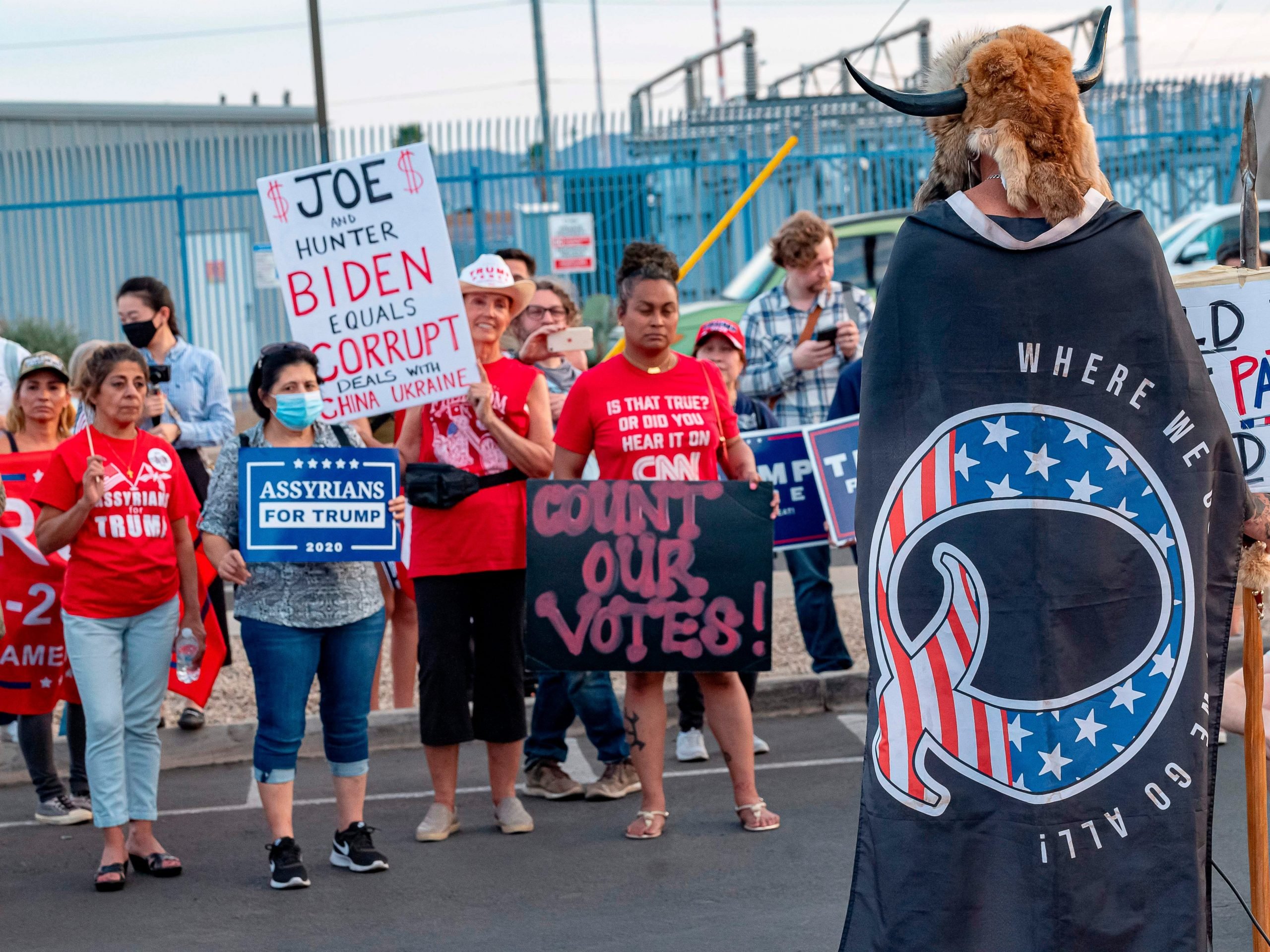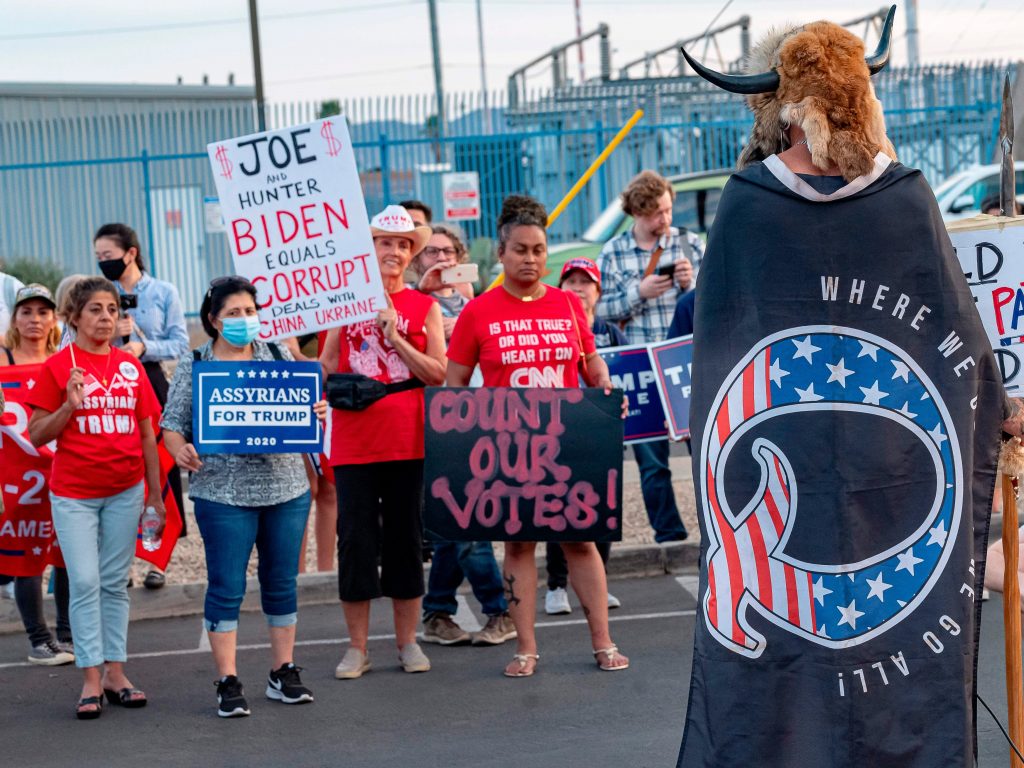
Olivier Touron/AFP via Getty Images
- Details from leaked internal Facebook documents were reported on Monday by several news outlets.
- One document, "Carol's Journey to QAnon," reportedly shows how a new user found QAnon content.
- A researcher reportedly said the user faced "a barrage of extreme, conspiratorial" content.
Facebook recommended QAnon groups to a new user within two days of them joining the platform, according to leaked internal research documents reportedly obtained by NBC News.
A Facebook researcher created the account for that fictional user, positioned as a Christian mother from Wilmington, North Carolina, named "Carol Smith," according to NBC News, which said they reviewed the leaked document.
The leaked document showed that Carol Smith had an affinity for politics and parenting, liked pages for former President Donald Trump and Fox News, and had shown zero interest in conspiracy theories before getting pushed toward QAnon content during the experiment in the summer of 2019, NBC News reported. The research, entitled "Carol's Journey to QAnon," was used to track how Facebook's recommendation algorithm could polarize and misinform users, according to NBC News.
QAnon is a web of baseless conspiracy theories that began with the false claim that Trump was fighting against a cabal of "deep state" human traffickers. Believers of QAnon have been accused of several crimes, involving murder and kidnapping, as Insider has reported.
The document is part of the so-called Facebook Papers, an array of thousands of pages of internal documents reportedly obtained by the whistleblower Frances Haugen, a former product manager in Facebook's civic integrity division. Haugen initially disclosed documents to The Wall Street Journal, which began reporting on the papers in September. An organized group of 17 United States news organizations said they reviewed the papers and published a slew of reports on the leaked internal documents on Monday morning.
Insider did not obtain the documents.
Though Carol Smith did not join any of the QAnon groups she was initially recommended, the algorithm "pushed ahead" with its recommendations, NBC News reported. Within a week, the user's feed was packed with pages and groups that violated Facebook's own hate speech and disinformation guidelines, the leaked research showed, as reported by NBC News.
Carol Smith's Facebook feed became "a barrage of extreme, conspiratorial, and graphic content," the researcher reportedly wrote in the leaked document.
A Facebook spokesperson told NBC News in a statement that this research "helped inform" the decision to ban QAnon from the platform. The company announced in August 2020 that it was taking action against and removing groups that pose "significant risks to public safety," including targeting QAnon groups, pages, and accounts that promoted violence. In October 2020, as other social media companies including YouTube and Twitter took stronger stances on QAnon, the company expanded its policy to ban all non-violent QAnon accounts across all its platforms.
When Haugen revealed her identity as the Facebook whistleblower in a "60 Minutes" interview on October 3, she alleged that Facebook promotes extremist content and pushes unsuspecting right-wing users toward far-right conspiracy theories.
During Haugen's testimony before a United States Senate Commerce subcommittee on October 5, she accused the platform of destabilizing democracy, making women and young girls feel bad about their bodies, and prioritizing profit over everything else. She also said that no one holds CEO Mark Zuckerberg "accountable but himself" and suggested that the federal government create an official body to oversee and regulate platforms like Facebook, as Insider reported.
Facebook CEO Mark Zuckerberg responded to Haugen's claims about the platform in a 1,300-word statement on his Facebook page later that day, saying "many of the claims don't make any sense" and denying that the company "prioritize[s] profit over safety and well-being."
Read more stories from Insider's Digital Culture desk.
